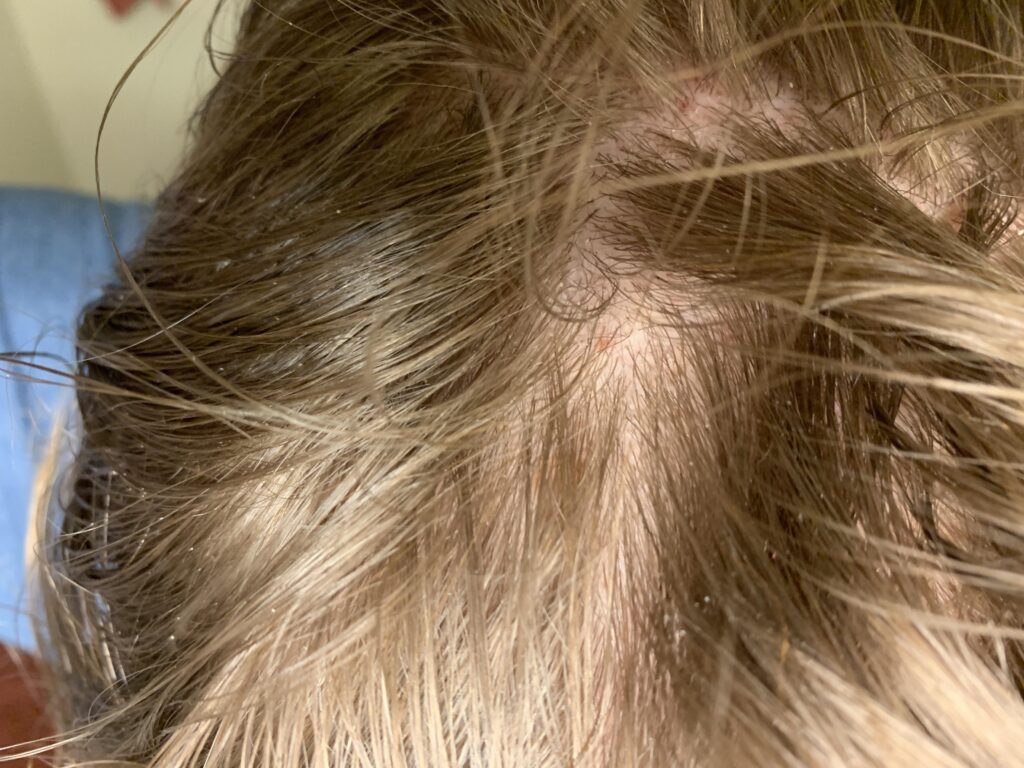Do I Have Lice Or Am I Paranoid

Itchy Scalp Alert: Lice vs. Litching (Differentiating Between Pesky Parasites and Paranoid Itch)
An itchy scalp can be a source of annoyance and anxiety. But before you jump to conclusions about lice infestation, it’s crucial to differentiate between genuine lice and a case of “phantom lice syndrome” (also known as delusional parasitosis). This comprehensive guide explores the signs and symptoms of head lice, compares them to potential causes of scalp itch unrelated to lice, and offers tips for self-diagnosis and seeking professional help.
Understanding Head Lice:
Head lice are tiny, wingless insects that live on the scalp and feed on human blood. They are highly contagious and spread most commonly through head-to-head contact or sharing personal belongings like hats, brushes, or combs.
Signs and Symptoms of Head Lice:
Here are some key signs and symptoms that might indicate a head lice infestation:
- Intense Itching: This is the most common symptom, particularly around the ears, back of the head, and nape of the neck.
- Visible Lice or Nits (Eggs): Adult lice are small, grayish-brown insects about the size of sesame seeds. Nits are tiny, oval-shaped eggs attached to hair shafts near the scalp. They are typically yellow or white in color.
- Scratch Marks: Repeated scratching can lead to visible sores or scabs on the scalp.
- Restlessness or Difficulty Sleeping: The itching and irritation caused by lice can disrupt sleep.
- Feeling Something Moving in Your Hair: This is a less common symptom, but some individuals might experience a sensation of movement on their scalp.
Important Note: The absence of some of these symptoms doesn’t necessarily rule out lice infestation. Early infestations might not present with all the signs listed above.
When Itching Isn’t Lice: Exploring Alternative Causes
An itchy scalp doesn’t always signify a lice infestation. Here are some other potential causes to consider:
- Dry Scalp (Seborrheic Dermatitis): Dry scalp conditions can cause itching, flaking, and redness.
- Psoriasis: This chronic skin condition can manifest on the scalp as itchy, red, and scaly patches.
- Eczema: Eczema can cause itchy, inflamed patches on the scalp and other areas of the body.
- Fungal Infections (Ringworm): Fungal infections of the scalp can lead to itching, scaling, and hair loss.
- Skin Allergies: Allergies to hair products, dyes, or even certain fabrics in hats or headbands can cause scalp itchiness.
- Stress and Anxiety: Stress and anxiety can manifest in various ways, including scalp itching.
Self-Diagnosis: Taking Control
While a definitive diagnosis should come from a healthcare professional, here are some steps you can take to assess your situation:
- Close Head Examination: In a well-lit area, use a magnifying glass to examine your scalp for lice or nits. Pay close attention to the areas behind the ears and the nape of the neck.
- The “Nit Picker” Test: Separate a small strand of hair near the scalp and use your fingernails to gently slide down the hair shaft. If nits are present, they will be firmly attached and difficult to remove.
- Consider Alternative Causes: Reflect on any recent changes in your hair care routine, new hair products, or potential stressors that might be contributing to the itch.
Seeking Professional Help: When in Doubt, Get Checked Out
If you suspect lice or are unsure about the cause of your itchy scalp, it’s crucial to seek professional help. Here’s why:
- Accurate Diagnosis: A healthcare professional can accurately diagnose the cause of your scalp itch and recommend the appropriate treatment plan.
- Treatment Options: If you do have lice, a healthcare professional can prescribe effective lice treatment medications or recommend over-the-counter options. They can also guide you through the lice removal process.
- Ruling Out Other Conditions: A professional diagnosis can ensure underlying skin conditions or allergies are not the cause of your itch.
Tips for Managing Itchy Scalp (Regardless of Cause):
Here are some general tips for managing an itchy scalp, regardless of the underlying cause:
- Gentle Hair Care: Use a mild shampoo and avoid harsh chemicals or frequent styling treatments that can irritate the scalp.
- Moisturize: Scalp dryness can exacerbate itching. Consider using a gentle scalp moisturizer or natural oils like coconut oil.
- Manage Stress: Stress can worsen scalp conditions. Practice relaxation techniques like meditation or yoga.
- Avoid Scratching: Scratching can worsen irritation and potentially lead to infection.



